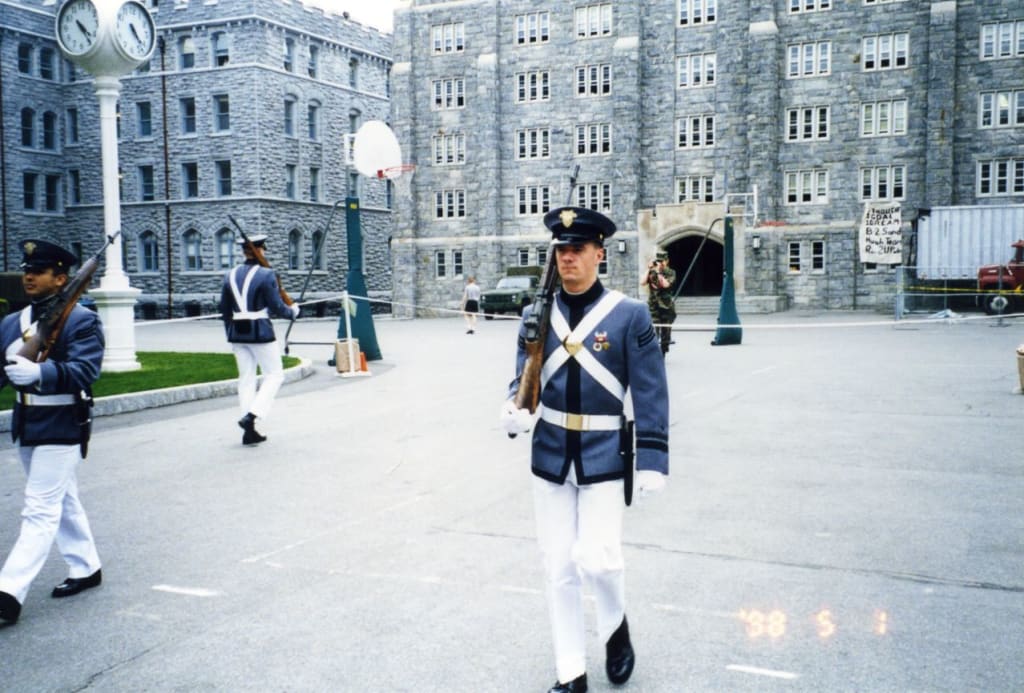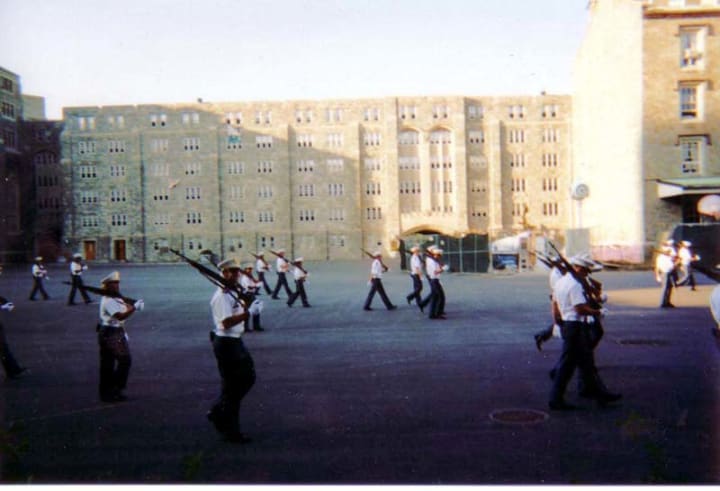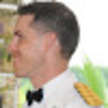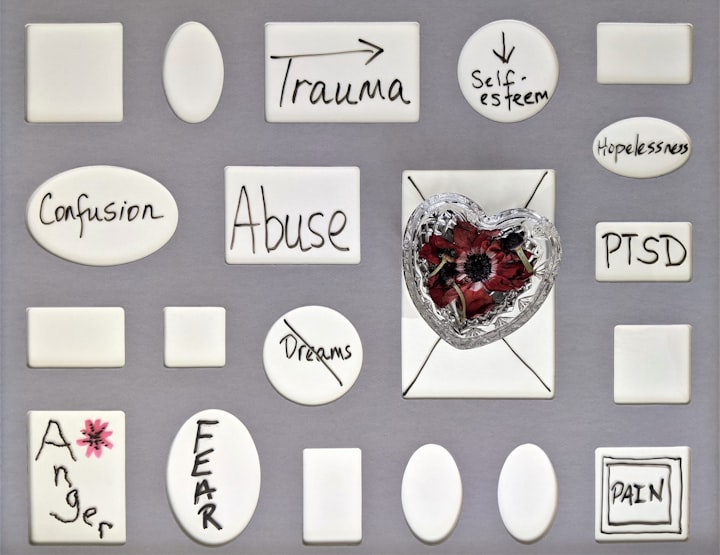Kicking Pennies in the Rain
A Non-Lesson I Learned at West Point

The Corps probably has—it probably had long before I’d gotten there, too—I don’t know what punishments the cadets inflict upon themselves today, but in 2002 the approved method of masochism were area tours, colloquially referred to as “walking hours.” An Area Tour was the most common punishment for both minor and major infractions; the severity of punishment rose in accordance with the egregiousness of the crime. The punishment was to spend time, reflecting on your misdeeds, walking back and forth across the center of the campus. You hefted your rifle upon your shoulder, walked about one hundred paces, switched shoulders, faced about, and repeated the exercise for as many hours as your sins warranted. Being late to class garnered you five hours or so, or missing formation ten, or something like that (it seemed arbitrary to me at the time).
There’s more to it than that, though. You couldn’t be allowed to walk five hours in tight shoes without first determining the cleanliness of the uniform you were about to make dirty. Before the time started, all the day’s miscreants lined up to be inspected by the duty officer. The inspection was very thorough, and if the inspector decided you had failed (an entirely subjective decision) then you were not granted credit for one of your hours walked that day. You still had to walk it, but it didn’t count, which is the same as giving you one more hour. However, (this is where it gets tricky), you can only walk five hours a day, and slugs of punishment were invariably awarded in increments of five. Therefore, if one of your hours didn’t count, you were forced to return the next day to walk one more hour. But you couldn’t walk just one more hour without standing for inspection again. All of this leads to the effect that the inspection was taken very seriously, and one was likely to spend at least a good couple of hours preparing one’s uniform the night prior. Also, walking those five hours in the sun ruined your shoe polish, brass polish, and white belts, so you were forced to do it all again. No one wanted to fail inspection.
You were required to open the bolt of your rifle when the officer came to you, which is a little tricky: the rifles were un-oiled M-14s, and we wore cotton gloves, which made the combination of gripping the rifle with your left hand, while pulling sharply on the bolt with your right, difficult. It was bad form to brace the butt of the rifle on your leg; you were expected to have an iron grip, and not move your body except your arms. It is an impossible task; the force required to pull open the bolt is greater than the friction provided between your dry cotton glove, and the polished wooden grip of the rifle. A slightly damp glove, however, provided a much better chance of success. You couldn’t wet the glove completely, though, because the inspecting officer would see that instantly, and you would fail the inspection. To sneakily overcome, you could wait until it was nearly your turn, then cough into your gloved hand (moving at the position of attention was a crime, but people nearly always forgave an innocent cough). With some practice, you could spit just enough into your hand to provide a better grip on your rifle, and open your bolt sharply.
We were not required to march in formation; we walked individually. Talking was forbidden. There was one form of communication, however: kicking objects to each other. In a strange bond of kinship between fellow ne’er-do-wells, who often didn’t know each other, or were of different rank, we would kick pennies to one another. It was a tiny rebellion, which fostered a tiny human bond, and made walking five hours in the heat or cold somehow more bearable. Pennies were occasionally provided by well-intentioned cadets whose windows overlooked the central area. If you witness the phenomenon of area tours, what may look like bystanders pelting the inmates is in fact an obscure form of commiseration.
The first time I walked the area, I had received ten hours for I don’t remember what. Probably being late to formation, or forgetting how many days until Christmas. The inspecting officer found enough deficiencies in my uniform that I failed. We started walking, and I learned quickly the tradition of kicking pennies to each other. It was stupid, mindless, and against the rules. We were supposed to be marching away our debts, not enjoying ourselves. It then started raining. When it rains at West Point, it gets depressing. The sky is gray, the ground is gray, the buildings are gray, the cadets are gray. For five hours we walked in the rain, ruining our uniforms, and being unhappy, and very occasionally kicking pennies.
We were allotted a very brief time to return to our rooms, and grab our raincoats, which really only helped to make us worse. The raincoats were cheap, gray, plastic sheets, which rendered the individual an amorphous, colorless, shape.
After five hours, our souls were sufficiently cleansed for the day, and we returned to formation. The officer in charge of me, whose name I do not remember, asked me if I knew what a supernumerary was. I did not. He told me that at each inspection, the inspecting officer would choose the cadet with the best uniform, and instead of walking hours he would be allowed to change into fatigues, and go rake leaves or something useful. I remember his exact words: “It isn’t fun, but it beats kicking pennies in the rain.” He smiled when he said it, and was very human in that moment. The funny thing was, I hated him. He frequently denied us food, or otherwise harassed us beyond what was required. But I took his advice seriously, and spent that evening working on my uniform. The next morning, of the hundred or so cadets, I was indeed identified as the supernumerary, and I spent five hours raking leaves instead of walking. The work was unsupervised, so mostly I hid and napped. It was awesome. Because I was in my fatigues, I didn’t ruin my dress uniform, and I didn’t have to spend that night preparing for haircut inspection the next morning. The cadet who gave me that advice graduated, commissioned, and was killed in Iraq the next year.
I don’t know what the lesson in all this is. Probably there isn’t any. But when I think back to my four years at West Point the first thing I remember is the hours I spent kicking pennies in the rain.
Area Tours

This picture was taken by a very good friend of mine, who was killed in Iraq in 2007. I might be in this picture; I don't know. Link.







Comments
There are no comments for this story
Be the first to respond and start the conversation.